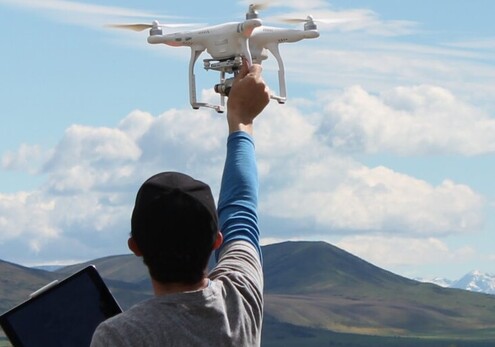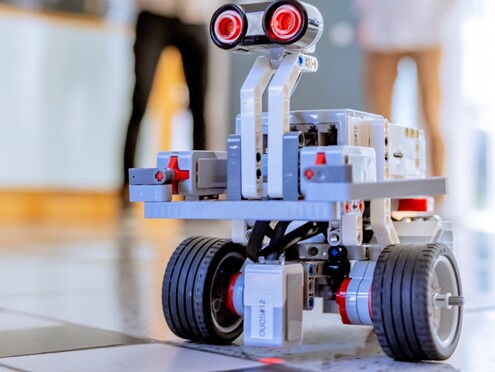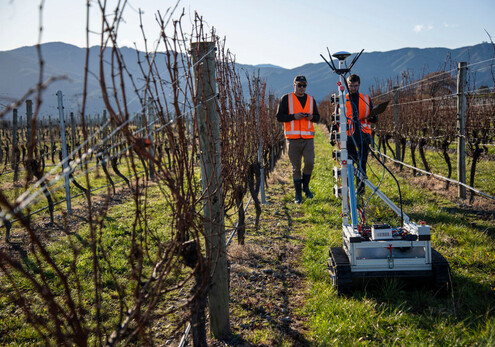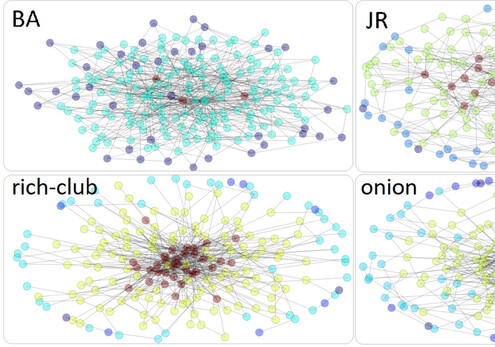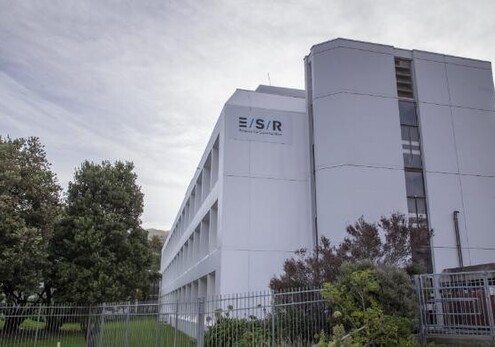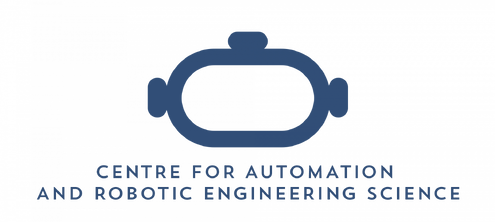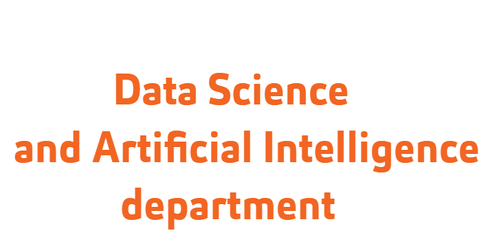Our universities and research institutes have very strong AI research that has a huge breadth and potential
We must invest in leveraging our strong AI research base to increase the competitiveness and productivity of Aotearoa New Zealand in a manner that suits our needs and priorities.
Building and strengthening mechanisms that efficiently disseminate AI expertise from research to industry has the potential to significantly increase productivity and prosperity for all of Aotearoa New Zealand
Research institutes, centres, labs, and groups
[Use the left and right arrows down the side of the page to navigate through]
The mission of the Centre of Machine Learning for Social Good is to advance fundamental knowledge in machine learning and data analytics while addressing the most challenging and pressing health, environmental, and societal problems of our time. This is the first centre in Aotearoa focusing on social good by using machine learning in collaboration with domain experts as a catalyst to solve high-impact societal issues.
We have broad research interests across machine learning and its applications. Most applications can be summarized under the umbrella of computational sustainability, a strongly interdisciplinary research area that uses machine learning approaches to address sustainability challenges in Aotearoa and worldwide. We cover all areas of Machine Learning and have strong expertise in fields such as Online Learning, Lifelong Learning, Spatio-Temporal Data Mining, Adversarial Learning, or Ethics in AI.
The Centre brings together expertise and innovation from two schools: the School of Engineering and Computer Science and the School of Mathematics and Statistics. Our work includes a broad range of research projects and commercial work for clients across various application domains, as well as postgraduate teaching and supervision for Master’s and PhD students.
The Complex Systems, Big Data and Informatics Initiative (CSBII) at Lincoln University aims to transform the way we perceive and solve complex problems through trans-disciplinary integration of advanced domain knowledge and cutting-edge complex systems, big data and informatics methodologies to provide effective and flexible solutions to evolving grand challenges.
The NAOInstitute researches natural, artificial, and organizational intelligence and its impact on humanity's future. The Centre collaborates with global institutions, follows a collaborative innovation approach, and incorporates tikanga Māori. The Centre is transdisciplinary and aims to build strong relationships with hapū for inter-generational well-being.
The Institute takes an interdisciplinary and collaborative approach to the development of cutting-edge artificial intelligence (AI) research. Our goal is to build awareness and expertise across disciplines so we can better leverage AI for the benefit of our communities. As a team we are focused on real-time analytics for big data, machine learning and deep learning and have created some of the world's most popular open source tools for machine learning.
CAIPP is dedicated to exploring policy, regulation, ethics and governance associated with the implementation of artificial intelligence. We champion innovative and interdisciplinary research into the analysis of the costs and benefits of this important new technology. The Centre studies AI-related policies proposed and/or implemented internationally, and participates in the wide-ranging international investigation of the impacts of AI. It pays particular attention to evaluating policy options for New Zealand.
The University of Otago’s AI group, based in the Department of Computer Science, explores a broad spectrum of artificial intelligence research, from foundational machine learning algorithms to real-world applications in areas like healthcare, finance, and environmental science. Leveraging interdisciplinary collaboration, the group works with experts in diverse fields to develop innovative solutions that address complex societal challenges. In addition to active research, the group offers teaching programs that equip students with the practical and theoretical skills necessary for tomorrow’s AI-driven world, contributing to both national and international AI communities.
University of Canterbury's Computer Vision Lab is a research group that computes properties of the three-dimensional world from images and video. Learn more about our research and meet our people.
University of Canterbury AI is a transdisciplinary group of internationally recognised researchers for artificial intelligence. From regulation to robots, learn about UC's Artificial Intelligence Research Group.
University of Canterbury's Spatial And Image Learning (SAIL) group collaborates with a number of New Zealand organisations. We research image processing and machine learning problems and develop prototypes for deployment.
Research at the Institute of Biomedical Technologies focuses on reducing the burden of chronic health loss from disease and disability by developing technology to measure, model and manage physiology. We work closely with industry and clinicians with the aim of generating a real-world impact from our work.
The Spatial Engineering Research Centre (SERC) is an academic research centre hosted by University of Canterbury's College of Engineering. The SERC team includes experienced research scientists, engineers, and PhD and graduate students, who can support a range of geospatial technologies.
We are an AI research group at the University of Auckland. We are engaged in artificial intelligence research and development from both the industrial and the academic side. Our research interests cover a wide range of topics across the modern AI world, including deep learning, reinforcement learning, multi-agent systems, natural language processing and complex network analysis. This research group is led by Dr. Jiamou Liu.
Data science at ESR has been established as both a vertical science pillar (the science of data) and a horizontal pillar taking the learnings from the vertical pillar and applying them to augment our foundational sciences and to improve the efficiency and effectiveness of ESR. This model sets us up to commercialise research and data science solutions across the public and private sectors.
The practice comprises a range of skillsets and mindsets set up as a centre of excellence to support the depth and breadth of ESR’s operations. Our approach is to partner with universities to utilise models and AI technologies they develop, so we can focus on developing capabilities to solve the real-world problems Aotearoa is facing.
CARES is an interdisciplinary group with a mission to create innovative and inspiring robotic technologies that benefit society, including physical, psychological and economic wellbeing. Our experimentally driven team unifies New Zealand’s best engineering, science, medical and health experts to deliver pioneering research and development in robotics technology for diverse applications spanning healthcare, service delivery to primary industries and beyond. Founded on robust science, our excellent hands-on experience in robotic system development is validated through real world field evaluations. Our strong focus is on human needs and workflow. We have enduring relationships with stakeholders including innovative companies, healthcare organisations, government organisations, and research partners, both in Aotearoa-New Zealand and internationally.
The Data Science and Artificial Intelligence department, established in 2025, is the newest department of engineering, computer and mathematical sciences at AUT. The department focuses on both fundamental and applied research in machine learning and artificial intelligence (AI). We aspire to be a leader in data science and AI education and research in New Zealand and beyond.
Our mission is to pioneer innovative, AI-driven software solutions that revolutionize healthcare systems, making them more accessible, efficient, and patient-centered. We aim to enhance the quality of life for people living with conditions like speech disorders or mental health. Through transdisciplinary research, we design advanced deep learning architectures and algorithms in collaboration with healthcare professionals, medical experts, and patient communities. Together, we tackle complex medical challenges, empower healthcare providers, and improve health outcomes for individuals and communities worldwide.
The Industrial AI Group @UoA is dedicated to developing translatable intelligent system technologies to transform the workplace into a more efficient, enjoyable, and sustainable environment. We focus on cognitive sensing, reasoning, control, and human interaction technologies, with applications in manufacturing processes, assembly, human-machine collaboration, and quality assurance.
Our mission: To deliver world-class innovation and research that enables a sustainable and safe transportation system, empowering thriving, resilient, equitable and sustainable communities in Aotearoa, New Zealand and beyond. The Transportation Research Centre pioneers cutting-edge research in transportation for Aotearoa and the world. Through interdisciplinary collaboration and innovative projects, it shapes sustainable mobility solutions, offering valuable insights and opportunities for global advancement in climate change mitigation.
The Laboratory for Industry 4.0 Smart Manufacturing Systems (LISMS) is New Zealand’s first Industry 4.0 Learning Factory. Recognized as the successor to the three earlier Industrial Revolutions, Industry 4.0 represents a smart manufacturing paradigm for the Factories of the Future. Industry 4.0 is ushering in a new era of industrial production whereby technologies such as Industrial Internet, Cyber-physical Systems, cloud computing and analytics, and AI and machine learning are deployed and integrated into production facilities and throughout the operations.
The focus of this lab is on fundamental problems of parallel computing, like task scheduling, visual tools for the parallelisation process and new forms of concurrency exploitation as desktop parallelisation and reconfigurable systems for high performance computing.
The arc/sec Lab is a research laboratory for Cyber-Physical Design and Interactive Systems, which is based at the University of Auckland at the School of Architecture and Planning. It explores real-time Reactive Architecture through the fusion of digital information and physical constructions.Specific to the lab is the use of large-scale installations and prototypes as the driving force of both, the exploration and the communication of hybrid environments.
Massey's Knowledge Exchange Hub uses data-driven research to identify and understand critical social and economic issues affecting New Zealanders. Our diverse team of researchers aims to improve the health, wealth and wellbeing of all New Zealanders through ground-breaking, data-driven research. We work with businesses and public sector agencies.
A selection of University research and insights
[Use the left and right arrows down the side of the page to navigate through]
"I'm so glad I chose Dream Builders for my new home construction. They delivered exactly what I envisioned, and the attention to detail was impeccable. From start to finish, their team was professional and efficient.
Emily Reed
"I recently had my home renovated by Dream Builders, and I couldn't be happier with the results. They transformed my outdated space into a modern, stylish living area and completed the project on time."
Matthew Turner
"I can't thank Dream Builders enough for the exceptional renovation work they did on my home. They exceeded my expectations and brought new life to my space. The team at Dream Builders was knowledgeable, friendly, and attentive.





